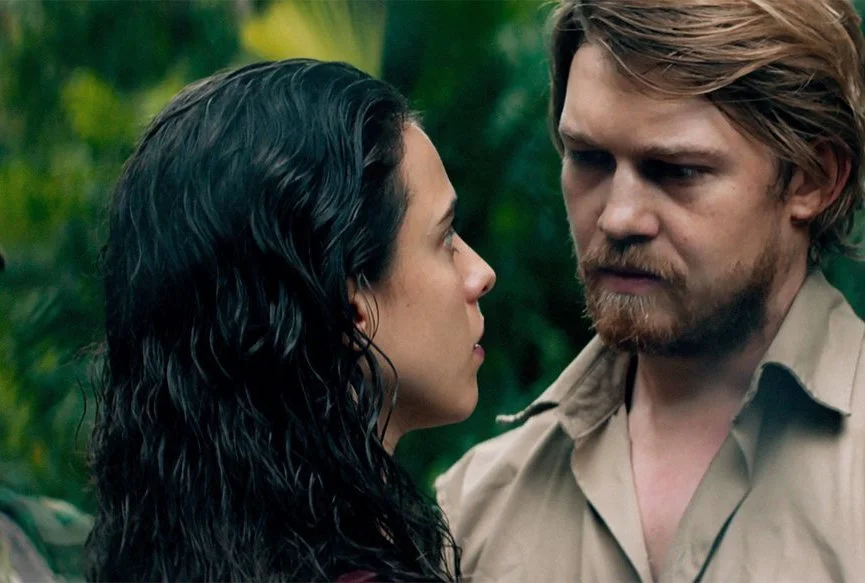Stars At Noon
Directed by Claire Denis
Running time: 2hrs15 | REVIEWED BY CATHERINE BRAY
Margaret Qualley and Joe Alwyn in Stars At Noon
In Stars At Noon — a hot, sticky thriller, world-weary but never wearying — director Claire Denis has basically developed a print negative of a James Bond film, set in a vision of Nicaragua that functions as a kind of slow-burn purgatory. The martinis are tepid, with too much vermouth in them; the getaway car is a clapped out old Toyota.
The whole tale is fittingly told from the perspective of a character generally disposable in the Bond canon: a woman engaged in occasional sex work. Margaret Qualley is well-cast as emotional drifter Trish, ably conveying that sense of someone who is a poor strategist but brilliant tactician, whose sharp instincts see her through the next five minutes time and time again, without helping her out much where it comes to any long-term objectives. She’s paired romantically with Joe Alwyn, as a guy seemingly frustrated with his failure to live up to his own cool-cucumber act. Alwyn plays this with a believable churlishness, recalling the flawed heroes of John Le Carré — though Stars At Noon is in fact based on a novel by American author Denis Johnson, which in turn takes its title from an economical and achingly lovely W. S. Merwin poem.
Where a Bond film generally elides sex scenes, often showing only an ABC highlights reel of seduction, glossy mid-sesh action and some teasing, post-coital banter, Stars At Noon is a bit more interested in the awkward stuff — in the halting conversation and silences before and after, and in the chemistry that keeps these two circling each other, well after they should have thrown in the towel. Key here is the difference between compatibility and chemistry. As a screenwriter, compatibility is the easier thing to play with, with a number of options: you can give an onscreen couple traits or interests in common, so that the audience sighs “aw, they’re soulmates.” Or you can use reverse-compatibility, in such a way that two characters become a jigsaw of perfect opposites that we need to see fit magnetically together into a satisfying whole.
Chemistry is tricksier and slipperier — it lives in the body as well as the mind, and exists largely in the subjective eye of the beholder. Chemistry will creep up and have its way with you; it is porous and sinuous and extends beyond the performances of the actors in a film, seeping into their surroundings, both powering and powered by tone, mood, milieu.
We’re not expressly cheering these two lovers on, or rooting for them to be together, because they aren’t exactly rooting for that either, at least not consciously. Their bodies know better, though, sending a subterranean depth-charge through the picture, as borders and boundaries, emotional and geographical, are subject to trespass and colonisation. Claire Denis knows exactly how to build an entire anti-Bond thriller around that magical, maddening, elusive feeling of being not quite fully in charge of yourself.
STARS AT NOON (2022) Written by Claire Denis, Léa Mysius, Andrew Litvack | Shot by Eric Gaultier | Edited by Guy Lecorne
Selected for the Competition at the 75th Cannes Film Festival
